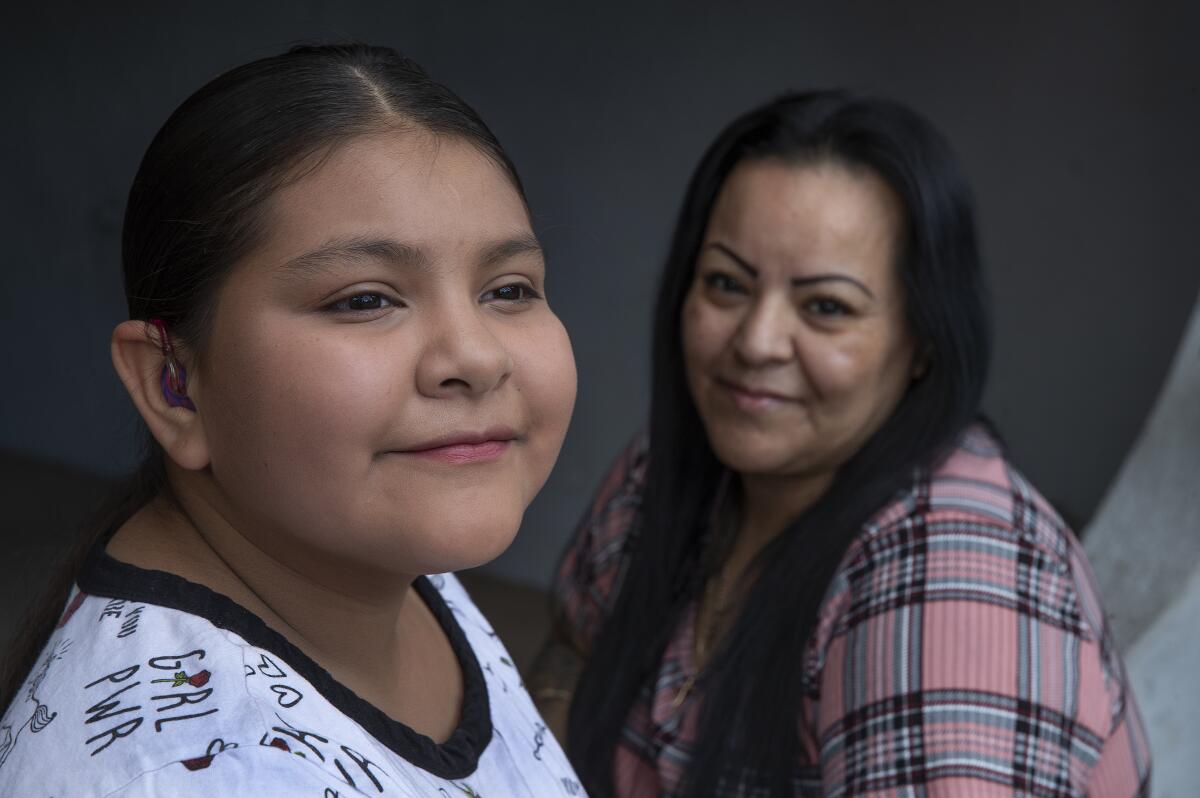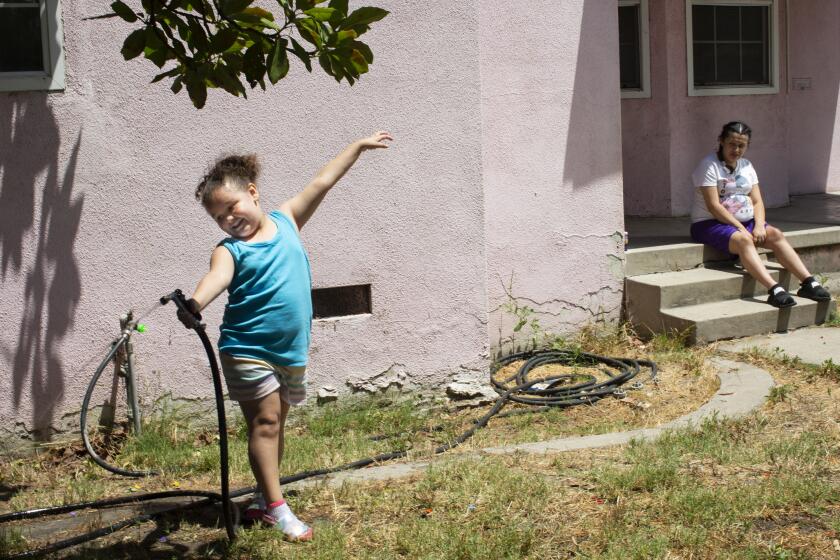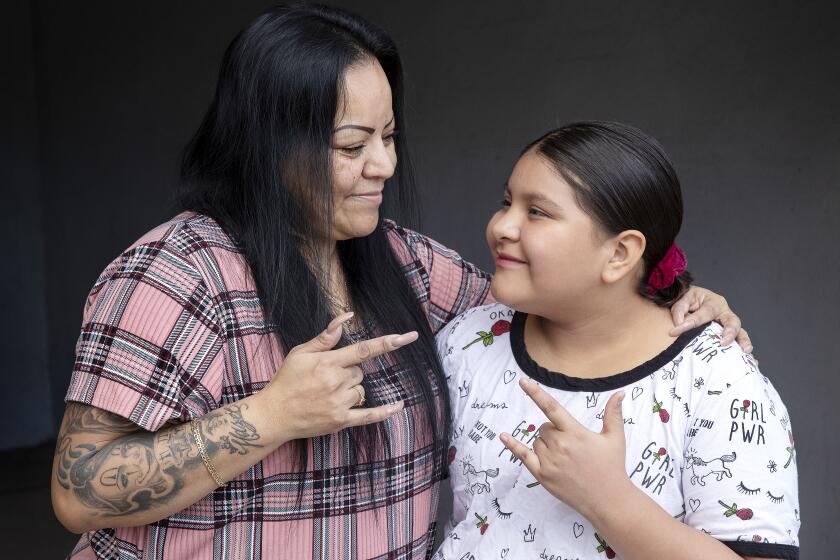LAUSD failed students with disabilities during pandemic, federal investigation finds

- Share via
Los Angeles Unified failed to provide appropriate education to students with disabilities during the pandemic as required under federal law and must provide extra services to help some of the most vulnerable students recover from the significant voids in their learning, the U.S. Department of Education announced Thursday.
The investigation, conducted by the department’s Office for Civil Rights, confirms what many parents have alleged since schools were first closed — that they basically had to fend for themselves during distance learning as their children were left with little if any education and specialized assistance. The district has entered into a voluntary agreement with the federal department to fix its failings.
“Today’s resolution will ensure that the more than 66,000 Los Angeles Unified students with disabilities will receive the equal access to education to which federal civil rights law entitles them, including compensatory education for any services the district did not provide during the COVID-19 pandemic,” said Assistant Secretary for Civil Rights Catherine E. Lhamon in a statement.
Federal law requires that districts provide a free appropriate public education to students with disabilities — meaning they must get regular or special education, aids and services designed to meet their individual needs.
The investigation found that the district failed to provide services identified in students’ legally required education plans, failed to accurately or sufficiently track services, and informed staff that the district was not responsible for providing so-called “compensatory services” aimed at helping students make up for what they lost, because the district was not at fault for the campus closures.
The agreement calls for the district to offer make-up services “to remedy any educational or other deficits that result from a student with a disability not receiving the evaluations or services to which they were entitled.”
California has mandated that school districts continue to provide special education to students with disabilities during the pandemic, but has waived key timelines that allow students to receive assessments and services quickly.
When schools closed in March 2020, many families of students with disabilities began describing roadblocks and delays as they tried to get help. They felt isolated and frustrated as their children were suddenly left without therapy, aides and specialized services they relied on. As months wore on, many said their children regressed after years of progress made in school.
In October 2020, a survey by the advocacy group Speak Up reported that more than a third of parents of students with individualized education plans said their children were not receiving all of the assistance the district had agreed to deliver. More than half said services were not being delivered in a manner suitable to their children’s needs.
This academic year, parents of students with disabilities enrolled in the district’s independent study program City of Angeles said they were struggling with nonexistent or delayed services, including aides and therapists, The Times reported.
And in November, a federal judge ordered the state to force districts to meet the needs of 15 disabled students — including seven from L.A. Unified — after their families filed suit, arguing that their children had been denied their right to an education.
“For many special education students this setback is something that is going to impact them for years,” said Alicia Montgomery, executive director of the nonprofit Center for Powerful Public Schools. “This is not something we can create a little intervention program for and fix it. ... It’s going to take more than that.”
At a news conference to discuss recommended changes to the district’s vaccine mandate on Thursday, Supt. Alberto Carvalho said the district was still reviewing information it recently received from the Department of Education related to its investigation.
But, he said, the district must “continue to improve our system of delivery [and] ensure that students are being provided with the services that they deserve specific to their [individualized education plans] and the most appropriate environment specific to their IEP.”
“That’s the commitment of this board,” Carvalho said. “That is my personal commitment.”
For students who are disabled, L.A. Unified’s independent study program has failed to provide required support for their education, parents and teachers say.
The agreement also calls for the district to designate an administrator to implement a plan for compensatory education, convene teams to assess whether students were not provided appropriate education and determine the services necessary to remedy deficits. And, LAUSD must publicize the plan to families, students and others.
School board President Kelly Gonez said she had not yet read the federal report, but acknowledged that the district has “an obligation to do more and better for our children with disabilities and all vulnerable students.
“As a leader in the district, it is really about rectifying any errors that existed in the past and looking forward, especially as we think about recovery from the pandemic,” she said.
Attorney Valerie Vanaman, who has been critical of the district’s treatment of students with disabilities throughout the pandemic, said she was happy about the agreement but continues having concerns about the district’s ability to follow through.
“This is a nice outcome to see. It gets us partway there, “ she said. “Where the rubber hits the road is ‘how will they actually implement it?’”
More to Read
Sign up for Essential California
The most important California stories and recommendations in your inbox every morning.
You may occasionally receive promotional content from the Los Angeles Times.














